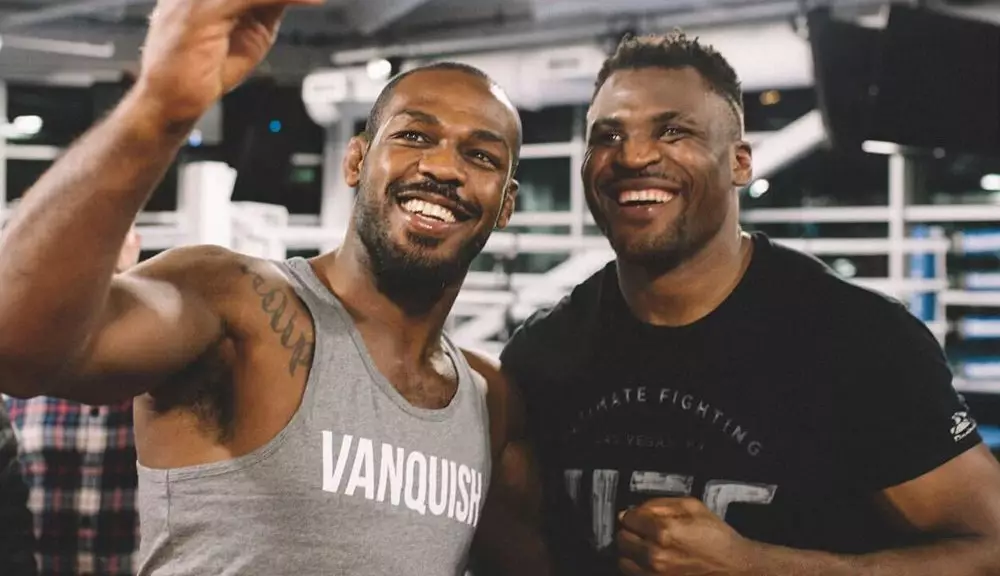In the ever-evolving world of mixed martial arts (MMA), particularly within the UFC heavyweight division, the narratives surrounding fighters and their matchups often shape public perception. Recently, Francis Ngannou offered a compelling analysis of Jon Jones’ decision to not pursue a bout against interim heavyweight champion Tom Aspinall. Ngannou, a former heavyweight champion himself, illuminates not just the rivalry between fighters but also the underlying dynamics of negotiations that are frequently overlooked by fans and media.
Jones, a fighter with an impressive record of 28 wins and just one loss, has faced significant criticism for prioritizing potential financial gain over legacy-building bouts. Following his victory over Stipe Miocic at UFC 309, Jones expressed a preference to fight light heavyweight champion Alex Pereira instead of Aspinall, stating that he would require what he termed “f*ck you money” to face his fellow competitor. This statement raised eyebrows and prompted discussions about the motivations driving elite fighters. Ngannou’s insights suggest that, for Jones, the fight against Aspinall does not hold the weight of a legacy-defining moment; rather, it appears more as a transactional opportunity for financial compensation.
Aspinall’s Position in the Heavyweight Division
Conversely, for Aspinall, currently holding a record of 15 wins against 3 losses, a fight against Jones represents an extraordinary opportunity to cement his status in the heavyweight division. Ngannou rightly highlights the disparity in what each fighter stands to gain from such a bout. For Aspinall, competing with a figure as legendary as Jones could serve as a definitive marker in his career—potentially opening doors to more prestigious fights and broader recognition in the sport. In this light, Jones’ reluctance becomes a significant talking point, painting him as someone who is strategically assessing his legacy rather than seeking to enhance it.
While discussing the current heavyweight landscape, it’s essential to acknowledge Ngannou’s own ambitions and position. Now the PFL heavyweight superfights champion, he asserts himself as a contender for the title of the world’s best heavyweight. Ngannou expresses a clear desire to challenge Jones, suggesting that both fighters understand the demands and stakes involved in their potential matchup. He highlights the weight of legacy, asking important questions about what each fighter hopes to achieve and the narratives that accompany such high-profile competitions.
The conversations surrounding Jones, Aspinall, and Ngannou reveal the complex fabric of MMA—where legacy, finances, and competitive instincts interweave. Ngannou’s perspective sheds light on the motivations of these fighters beyond what is visible during fight announcements and press conferences. As fans continue to scrutinize the choices of these elite athletes, it is crucial to consider the broader context that informs their decisions. The fight game is not just about physical encounters; it’s equally about strategy, timing, and personal goals, all of which make each fighter’s narrative uniquely compelling.

